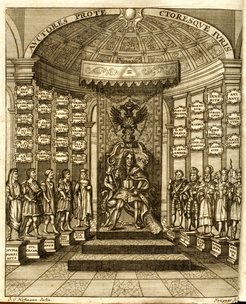Regimes of tradition
Research Project

It is hard to imagine a normative order that does not depend on or refer to the past. Actors are always part of an epistemic community and as such they always have at least a basic ‘legal literacy’, a knowledge about how to speak and act. They acquired this knowledge as tacit or implicit (embodied) knowledge via oral transmission, through media like books, from teachers, or in religious practices etc. Thus, any normative order of a society can be seen as the result of a diachronic process of cultural translation (in the broadest sense of the word, and not restricted to lingual translation) of knowledge of normativity from the past, continuously interpreted and adapted to changing circumstances. This ‘knowledge of normativity’ comprises discourses, norms, practices, institutions that are relevant for the production of normativity. ‘Knowledge of normativity’ is thus the object of cultural translation at the same time as it shapes the translation – and it is also the result of this continuous process of translation (see on this Duve, Rechtsgeschichte als Geschichte von Normativitätswissen?, 2021).
The particular constellations of discourses, practices, norms, institutions that shape or determine the use of the past for the construction of knowledge of normativity can be called a ‘regime of tradition’, a form of observing stable arrangements of knowledge for the production of normativity with regard to ‘tradition’.
In this research project, I am drawing on previous work on the concept of ‘tradition’ and its significance in the law, as well as on the conceptual work with regard to ‘regimes’, ‘translation’ and ‘multinormativity’. I am asking questions such as: What role did knowledge of normativity from the past play in the construction of a normative order? In which cases did actors draw on experience, and how and why did they do so? Which implicit or explicit discourses shaped the use of the past? Why and how were certain parts of the knowledge of normativity invested with higher authority than others? What are the aims and hopes in drawing on normative knowledge from the past?
The project is part of the joint project Glocalizing normativities.
